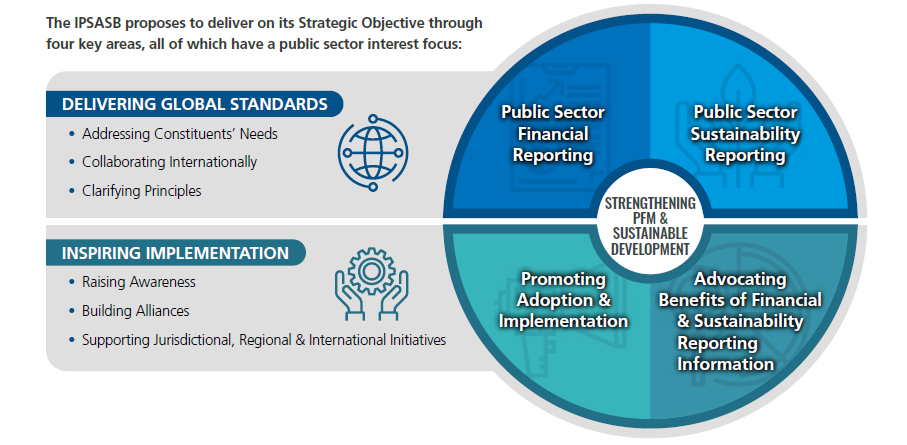IPSASB Issues Updated Chapters of Conceptual Framework
The International Public Sector Accounting Standards Board® (IPSASB®), developer of IPSAS®, international accrual-based accounting standards for use by governments and other public sector entities around the world, has published an updated chapter of its Conceptual Framework, which establishes the concepts that are applied in developing IPSAS and Recommended Practice Guidelines (RPGs) and are applicable to the preparation and presentation of public sector entities’ general purpose financial reports. The Conceptual Framework enables the IPSASB to ensure the consistency of its standard-setting by strengthening the linkage between IPSASs. Additionally, the transparency of the concepts underpinning the development of IPSASs and RPGs enhances the IPSASB’s accountability.
The updated chapter, Chapter 3, Qualitative Characteristics, completes the limited scope project to improve its Conceptual Framework for Financial Reporting by Public Sector Entities, which also included:
- Chapter 5, Elements in Financial Statements
- Chapter 7, Measurement of Assets and Liabilities in Financial Statements
The updated chapters have been informed by the IPSASB’s experience using the Conceptual Framework since its approval in 2014, and by global developments, notably the International Accounting Standards Board’s publication of a revised Conceptual Framework for Financial Reporting in 2018.
“As the IPSASB enters its next strategic phase, the Conceptual Framework will continue to be a cornerstone of the IPSASB’s literature,” said IPSASB Chair Ian Carruthers. “These changes strengthen the Conceptual Framework and reinforce its relevance to both our financial reporting and new sustainability reporting activities.”
The updated Chapter 3 includes guidance on prudence, which is not a separate qualitative characteristic in its own right and adds ‘obscuring’ information to ‘misstating’ and ‘omitting’ information as a factor relevant to materiality judgments. The addition of ‘obscuring’ is an acknowledgement that, for example, voluminous disclosures of immaterial items can have an adverse impact on the usefulness of financial reports.
The updated Chapter 5 includes revised definitions of an asset and a liability. Guidance on these definitions has been restructured to better align with the components of the definitions, making it more user-friendly. There are also new sections on unit of account and executory contracts that are equally unperformed by both parties.
The IPSASB has fully revised Chapter 7 to streamline measurement concepts by eliminating unused measurement bases and focusing on the most commonly used measurement bases. The new subsequent measurement framework explains how the various measurement components applied to estimate the value of an asset or liability interact.
The updated chapters of the Conceptual Framework became effective for the IPSASB when published.
How to Access
To access the updated Conceptual Framework chapters, the summary At-a-Glance document, webcast and a related Staff Questions and Answers document visit the IPSASB website. The IPSASB encourages IFAC members, associates, and Network Partners to promote the availability of these pronouncements to their members and employees.
About the IPSASB
The International Public Sector Accounting Standards Board (IPSASB) works to strengthen public financial management globally through developing and maintaining accrual-based International Public Sector Accounting Standards® (IPSAS®) and other high-quality financial reporting guidance for use by governments and other public sector entities. It also raises awareness of IPSAS and the benefits of accrual adoption. The Board receives support from the Asian Development Bank, the Chartered Professional Accountants of Canada, the New Zealand External Reporting Board, and the government of Canada. The structures and processes that support the operations of the IPSASB are facilitated by the International Federation of Accountants (IFAC). For copyright, trademark, and permissions information, please go to permissions or contact permissions@ifac.org.
About the Public Interest Committee
The governance and standard-setting activities of the IPSASB are overseen by the Public Interest Committee (PIC), to ensure that they follow due process and reflect the public interest. The PIC is comprised of individuals with expertise in public sector or financial reporting, and professional engagement in organizations that have an interest in promoting high-quality and internationally comparable financial information.
Conceptual Framework updates are effective when published. They are non-authoritative.

